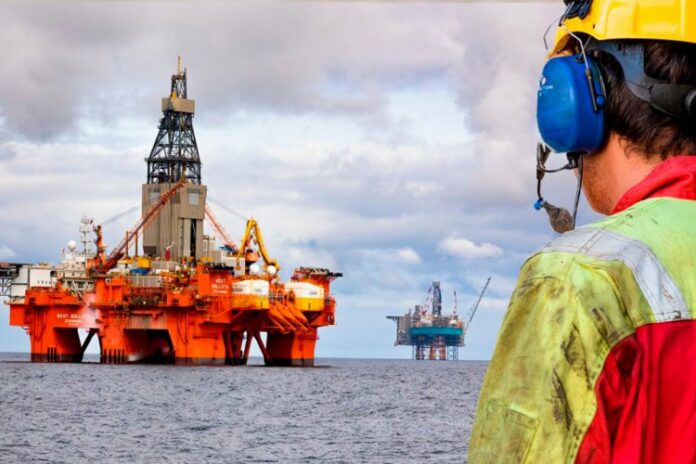NOx is a generic term for nitrogen oxide gases, formed when raw materials are combusted at high temperatures. These gases are toxic and contribute to pollution. The West Bollsta drilling rig is equipped with treatment technology in the exhaust system which makes it possible to remove 85-90% of the NOx emissions.
Axel Kelley, Environmental Manager in Lundin Energy Norway, says:
“West Bollsta is one of the first rigs in the world to install the new emissions treatment technology on all engines, making it the rig with the lowest NOx emissions on the Norwegian shelf, maybe even worldwide.”
“We contracted the rig when it was new. It’s been in operation now for about half a year, and we are seeing emission reductions of as much as 86%.”
The technology used is called Selective Catalytic Reduction (SCR). The principle is similar to that used in modern diesel vehicles (AdBlue). This technology introduces a concentrated urea solution directly into the exhaust. Urea and NOX react on a hot, porous surfaces installed in the exhaust line, typically made of pumice. The residual products from the reaction are water, nitrogen gas (N2) and small amounts of carbon dioxide (CO2).
The NOx treatment system is complex and requires a lot of space. Therefore, it is difficult to retrofit on an existing rig. West Bollsta was designed and built with treatment plants on all eight engines. Each facility extends over four floors in height and weighs 86 tons.
NOx emissions contribute to air pollution and are an essential component of smog, which we sometimes see enveloping major cities. In order to reduce emissions in Norway, and fulfill our international obligations, NHO’s NOx fund was established. The reduction target set for 2020 was reached as early as 2017. We are now well on our way to reaching our group carbon neutral target set for 2025. The measures implemented at West Bollsta is a further step in the right direction.
Axel Kelley says:
“In addition to a substantial environmental benefit, this is also good business. Reduced emissions also mean reduced NOx tax. So far, we have saved more than 5 million kroner, so depending on which operations the rig performs, we expect that these measures will have paid for themselves in 2-5 years.”



